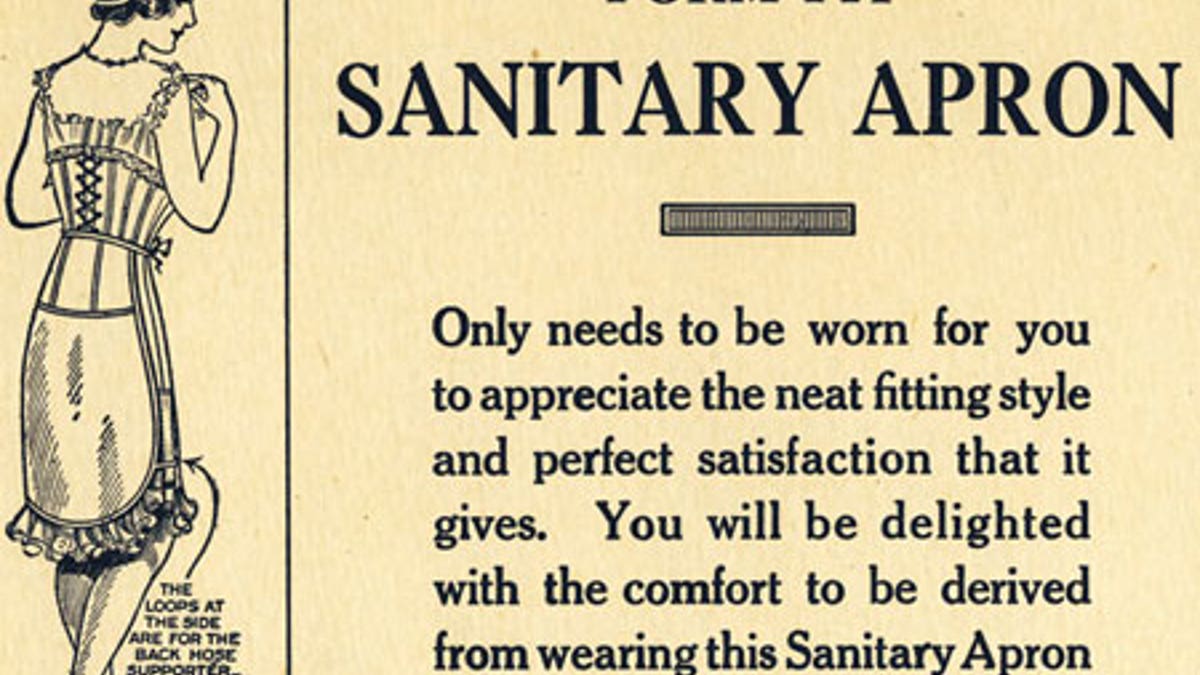
When you think menstrual cycle, you don’t exactly think open conversation.
Two authors are out to change that.
Elissa Stein and Susan Kim, authors of “Flow: The Cultural Story of Menstruation,” decided to write a book about the history and taboos of women’s periods when Stein was too embarrassed to talk to her doctor about a menstrual problem.
Slideshow: The History of Menstruation
“I was too ashamed to talk about it. And that’s a really terrible way to feel about your body,” Stein told FoxNews.com.
She didn’t want her 12-year-old daughter to grow up feeling the same way.
The point of “Flow” is to break down the silence and embarrassment on this fact of life, and to start communication. The book helps readers understand the reality and the history of menstruation, which the authors believe is especially important for young women.
“Things are so much better for girls now, but it hasn’t been like that for long,” Stein said. “By sharing this history, girls can get a better sense of being appreciative of where we are now, but also how far a lot of the women in the world have to go.”
Since the early 1920s, when advertising for period-related products began, menstruation has been marketed as a big secret that women should try to hide, and the idea stuck. Today, the concept of periods being "gross" and inconvenient has gotten to the point where women can even chose medication to opt out of their monthly period altogether.
Menstrual suppression drugs, are forms of the birth control pill currently being marketed very aggressively as a lifestyle drug that you can take in order to avoid your period for a Pilates class or a romantic weekend with your boyfriend.
“Girls need to understand it’s not that simple. There are dangers with the environmental ramifications of their periods, and there are also health issues involving your periods,” Kim said.
Combinations of advertising, religion, manufacturers, superstition and media have led to menstruation being viewed as a woman’s downfall. In 1912, the New York Times featured an editorial article stating that women shouldn’t have the right to vote because they are emotionally unstable when they are menstruating, and therefore couldn’t handle the responsibility.
“It’s a healthy bodily function, it means that your body is working the way that it should,” Stein said.
The authors came across numerous surprises while researching “Flow,” and both have their favorite facts that shocked them the most. One was the notion of douching with Lysol, and another was the performance of hysterectomies for the treatment of a condition called "hysteria."
“When I read that women were encouraged to douche with Lysol, I thought it had to be a mistake, somebody had to be making it up,” Stein said. But then she found old Lysol ads with the words "feminine hygiene" plastered across the bottom. In the 1920s, when there was no form of birth control, Lysol was used after sex to prevent pregnancy.
“The tone of the Lysol ads really blamed all of the marital problems on the woman, on a woman’s smell,” Stein said. “Your husband will leave you, he will become frigid; these ads were almost soap opera-like.”
Another frightening fact that Kim found was the medical diagnosis called hysteria. For thousands of years, hysteria was diagnosed when any woman was acting "out of sorts."
“Hysteria was a catch-all for the human female condition. If a woman was tired, irritable, happy, excited; basically if you have any kind of personality, if you weren’t placid and sweet all the time, you were considered hysterical,” Kim said.
What is even more surprising than the diagnosis of hysteria, was the treatment and cure. To ease the symptoms of their condition, women were sent by their husbands to receive "hysterical paroxysm," or genital stimulation by a doctor until they reached orgasm. This is how the vibrator was invented.
That was the treatment. The cure for hysteria was not as simple. It was commonly believed that the uterus was the center of a woman’s emotional state, and performing a hysterectomy was considered an acceptable way to "calm down" a woman.
“Men could make a decision; they could say, ‘my wife is out of control, let’s take her uterus out,’” Stein said. “It was like a lobotomy, except it was with the uterus,” Kim added.
“Flow” doesn’t just talk about the history of menstruation, but all the taboos and myths that go along with it. It touches on things you may have always wondered about, but were too afraid to ask.
For example, Stein called sex during menstruation "the ultimate taboo."
The authors of “Flow” said they think having sex during your period is a personal choice, and plenty of women do it — so you shouldn’t feel like the only one if you do too.
